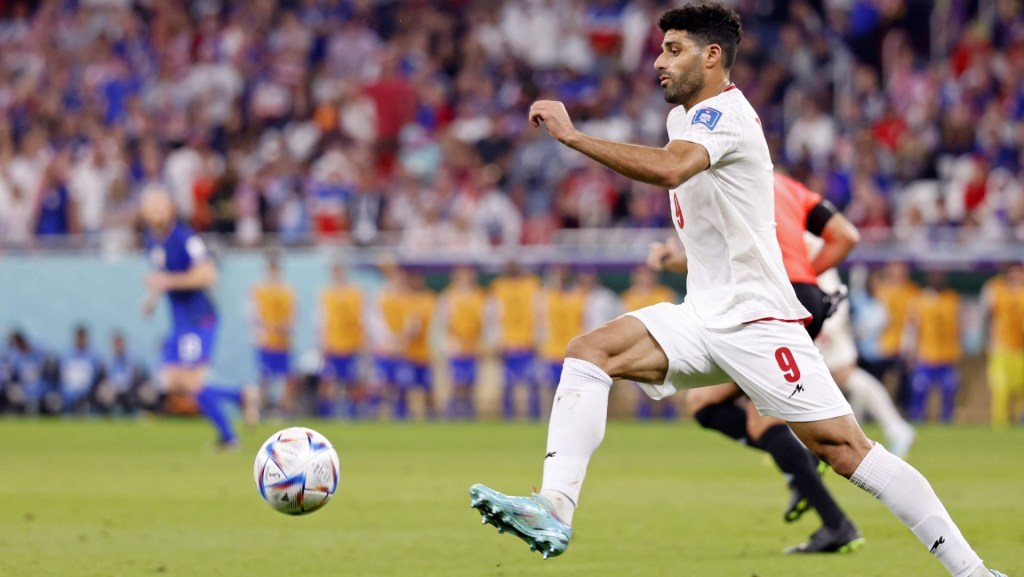The NCAA is doubling down on its federal lobbying efforts during the first months of the Trump Administration, paying hundreds of thousands of dollars to lobby the newly Republican-controlled Congress.
The governing body spent $450,000 on lobbying during the first quarter of 2025—almost double the amount it spent during the first quarter of 2024.
The spending is a continuation of the NCAA’s yearslong federal lobbying effort to convince Congress to pass a law that would award it control over the amateurism rules that remain.
And since last year, the NCAA has been attempting to convince Congress to codify the terms of the House v. NCAA settlement proposal. “The message I got when I showed up [in Washington] was: Clean up your own house, and then come talk to us,” NCAA president Charlie Baker told reporters during the men’s Final Four. The NCAA sees the settlement as proof that the NCAA has done everything it can to fix college sports—and that it’s now Congress’s turn to step in to protect the remainder of its rules and allow it to legally impose others, like transfer restrictions. To do so, the NCAA is asking for antitrust protections, preemption of state NIL (name, image, and likeness) laws, and a stipulation preventing college athletes from being reclassified as employees.
In a statement last May, the NCAA and conferences called the settlement proposal a “road map” for Congress. A federal judge is expected to rule on final approval at some point in the next couple of weeks.
“The NCAA is making positive changes for student-athletes and confronting many challenges facing college sports by mandating health and wellness benefits and guaranteeing scholarships,” the NCAA SVP for External Affairs said in a statement to Front Office Sports. “But there are some threats to college sports only Congress can address, and the Association is advocating with student-athletes and their schools for a bipartisan solution.” Tim Buckley was referring to the NCAA’s inability to classify athletes as amateurs and regulate the transfer portal, among other issues, without congressional assistance.
Buckley did not comment on what specifically accounted for the uptick in spending this past quarter.
The NCAA is its own nonprofit entity, complete with a brick-and-mortar office in Indianapolis and dozens of employees tasked with putting on championships, enforcing rules, and, yes, lobbying. But the NCAA considers itself a “member-driven” organization—simply carrying out the will of the schools it represents.
Industry experts suggested Republicans may have been more amenable to the NCAA’s demands—potentially why they’ve decided to up their lobbying muscle in the hopes of getting legislation over the line. However, sources have since told FOS that some House and Senate Republicans are against at least the NCAA’s requested antitrust exemptions for a variety of reasons, including that they simply don’t trust the NCAA.
Between January and March, the NCAA paid $90,000 to Brownstein Hyatt Farber Schreck, its longtime lobbying firm, according to a quarterly lobbying disclosure filed April 18. (The firm billed $67 million in 2024, making it the top-grossing lobbying firm last year, according to OpenSecrets.)
The NCAA also spent $90,000 on lobbying activities from theGroup DC, another heavy-hitter the governing body hired in January, which represents major clients such as PepsiCo and UnitedHealth Group. Three lobbyists are listed on the firm’s new client registration form. Two have backgrounds working for Democrats, while one has a background working for Republicans.
The NCAA also paid $270,000 for its own in-house lobbyists. Since 2018, the NCAA has employed Dawn Buth full-time in government relations. Buth had operated solo for several years, until the governing body hired another in-house lobbyist, last July: Kevin McColaugh, a former employee of NCAA president Charlie Baker during his time as Massachusetts governor. The NCAA normally spends between $120,000 and $140,000 on its in-house lobbying efforts, a fact that didn’t change when McColaugh was added to the fold in the third and fourth quarters of 2024.







![[Subscription Customers Only] Jun 15, 2025; Seattle, Washington, USA; Botafogo owner John Textor inside the stadium before the match during a group stage match of the 2025 FIFA Club World Cup at Lumen Field.](https://frontofficesports.com/wp-content/uploads/2026/02/USATSI_26465842_168416386_lowres-scaled.jpg?quality=100&w=1024)
![[Subscription Customers Only] Jul 13, 2025; East Rutherford, New Jersey, USA; Chelsea FC midfielder Cole Palmer (10) celebrates winning the final of the 2025 FIFA Club World Cup at MetLife Stadium](https://frontofficesports.com/wp-content/uploads/2026/02/USATSI_26636703-scaled-e1770932227605.jpg?quality=100&w=1024)








